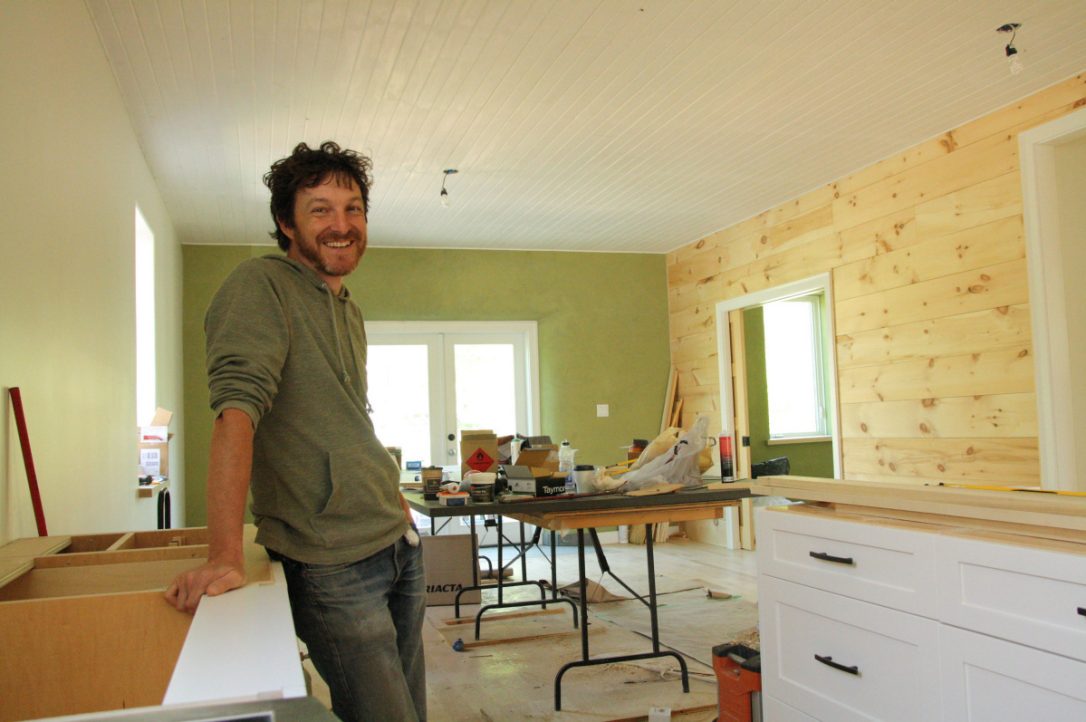
I’ve been looking forward to speaking with my next guest for a long time now. Chris Magwood is the founder and director of the Endeavour center, which provides experiential education at the intersection of high-performance and natural building. Chris is a self proclaimed building “omnivore” who experiments with any and all materials and techniques he can get his hands on. He has dedicated his career to making the best, most energy efficient, beautiful and inspiring buildings without wrecking the planet in the attempt. I’ve followed his work and especially his books as I’ve been learning about all sorts of natural building innovations because Chris has done an amazing job of comparing and contrasting various natural materials to make it easier to choose which of the options available would be best suited for the context and design of a building.
In this interview Chris talks about how he fell in love with natural building as he aspired to build his own home. From there we go into detail about some of the most important considerations when designing a sustainable home and how even natural buildings can be consumptive and wasteful if designed incorrectly for their place and climate. Chris also unpacks some of the popular building standards and why using them as design guides can limit the full potential of an ecologically responsible project if followed too rigidly. We also discuss one of the biggest challenges for natural builders, and that’s the codes and regulations that can be tricky to navigate if the regulatory bodies are treated as adversaries from the beginning. I especially like his observations from his extensive experience working with, rather than against the building inspectors in Canada for so many years. This is a really practical and pragmatic look at the wide variety of options and considerations for natural builders and owner-builders. This episode kicks off a series dedicated to all aspects of building and design that facilitates a regenerative lifestyle. Be sure to stay tuned to the next few weeks of episodes as I’ll be speaking with builders and designers focusing on in-depth topics and natural building materials.
Resources:
Workshop Schedule from the Endeavour Center
Buy Chris’ books from New Society Publishers
If you’re like me, you’ve dreamed of having a permaculture farm for a long time, but knowing where to start can be tricky, even if you’ve taken a PDC or other design courses. That’s why I want to tell you about the Permaculture Farm Design Course, put together by my friend and frequent contributor to this podcast, William Horvath from thepermacultureapprentice.com. This course is the simplest, easiest way to design your permaculture farm without spending thousands of dollars on in person PDCs, or hiring professional designers or consultants.
This course is the culmination of William’s research and the most important lessons he learned from permaculture giants like Geoff Lawton, Darren Doherty, David Holmgren, and Mark Shepard, all boiled down to a simple step-by-step roadmap that anyone can follow.
William has simplified the entire design process and meticulously laid down how each phase of the process works, with simple instructions and design examples so you can come up with a design for your permaculture farm in as little as one week.
You don’t even need any previous design experience or a PDC to get the most out of this course, just a willingness to learn and follow the system outlined in the program. In a short time you’ll have a plan that has a clear set of goals to allow you to make your vision a reality
What’s more, when you type in the code “design” at checkout, you’ll receive 10% off the price of the course. Make your dream of regenerative living a reality today. Click on the link in the show notes of this episode and fast-track your way to natural abundance with the Permaculture Farm Design Course.

